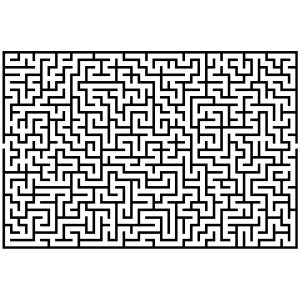
PROFESSIONAL SERVICE
EPO OPPOSITIONS
The EPO allows third parties to challenge its decision to grant a European patent for a short period of time after that patent has been granted. If successful, an opponent may convince the EPO to revoke the patent, or at least get the proprietor to amend it, which can be vital for the opponent’s commercial strategy. EPO opposition proceedings are much cheaper than challenging validity of a patent in the courts, and the result of the opposition proceedings takes effect in all of the European countries in which the patent has effect. This means EPO oppositions are very attractive to those wishing to have a European patent invalidated.
To oppose a European patent, the opponent has to present its case to the EPO within 9 months of the grant date of the patent. The EPO will then give the proprietor of the patent an opportunity to respond within about 4 months of being informed that an opposition has been filed. The EPO’s Opposition Division will then consider the arguments put forward by each side, and will usually then issue its preliminary, non-binding opinion on the pertinent issues. In many cases, both sides will then be set a deadline for filing further written arguments and evidence, and there will normally then be an oral hearing for both sides to present their arguments to the Opposition Division directly. The Opposition Division will then decide on the matter, and a written decision (i) maintaining the patent as granted, (ii) maintaining the patent in amended form, or (iii) revoking the patent altogether will be issued shortly afterwards.
Whilst the exact time EPO oppositions take to complete can vary depending on the complexity of the case and the number of parties involved, an approximate timeline for these types of proceedings is illustrated below.
We have a wealth of experience in oppositions before the EPO, both in terms of defending our clients’ patents from attacks by opponents and attacking the patents of our clients’ competitors. Our team is accustomed to handling high-value, complex proceedings and is, for example, currently involved in attacking a collection of highly valuable, cutting-edge life sciences patents relating to the revolutionary gene-editing technology known as CRISPR/Cas9.
If there is a European patent that you want revoked, then we would be happy to work with you to file an opposition at the EPO. Similarly, if your European patent is under attack from your competitors and you would like our help defending it, then we would be happy to work with you to fend off that opposition, as well.
EPO oppositions can be filed anonymously, and thus if you are concerned about your competitors learning that their European patent is problematic for you, then we can file the opposition in our name, avoiding the need to identify you at any stage.
MOST EPO OPPOSITIONS FOLLOW THE SAME PROCESS
EPO OPPOSITIONS TIMELINE
0
Months
European Patent Granted
9
Months
Opposition Filed
10
Months
EPO Invites Proprietor to Respond
14
Months
Proprietor Files Response
17
Months
EPO Issues Summons and Preliminary Opinion
19-25
Months
Deadline for Making Final Written Submissions
20-27
Months
Oral Proceedings and Verbal Decision
24-33
Months
Written Decision Issued

PROFESSIONAL SERVICE
EPO APPEALS
Sometimes, the EPO’s Examining Division may refuse one of your European patent applications, or the EPO’s Opposition Division may reach a decision that is not in your favour. Fortunately, those adverse decisions can be appealed to the EPO’s Boards of Appeal, where you have an opportunity to have that decision overturned. Convincing the Boards of Appeal to overrule the Examining and Opposition Divisions is no easy task but, with our team’s technical and legal know how and years of experience representing clients in these types of proceedings, we have handled a large number of EPO appeal cases with successful outcomes.
To appeal a decision of the EPO, the appellant must file notice of that appeal within 2 months of the decision being issued. Within 4 months of the decision being issued, the appellant has to set out the grounds on which its appeal is based. In the case of appeals arising from opposition proceedings, the EPO will then notify the other side that an appeal has been filed, giving the other side approximately 4 months to file a submission in response. Typically, the EPO will then issue a preliminary, non-binding opinion on the arguments presented, and will summon the parties to an oral hearing to present those arguments further. A decision will be taken on the matter at the oral hearing, and written reasoning for that decision will then be issued by the Board of Appeal within the next few months.
We frequently represent clients who want to appeal a decision of the EPO that hasn’t gone their way and, with our team’s specialist expertise regarding a variety of different technologies, we are well-placed to help you challenge a decision that has gone against you, too.
EPO Oppositions & Appeals Team
Our Schlich attorneys have considerable experience and are able to advise on all aspects of oppositions and appeals before the EPO.
Recent Insights
Read the latest insights from the Schlich team reporting recent cases and updates from the EPO.
Updates to the Guidelines for Examination in the EPO – 2024
The Guidelines for Examination in the European Patent Office (EPO) “the Guidelines” act as an instruction manual with respect to the various aspects of the examination of European patent applications and patents before the EPO, that is they dictate the practice and procedure that should be followed under the European Patent Convention (EPC) and its Implementing Regulations “the Rules”. The Guidelines are updated on an annual basis and the latest edition, which supersedes the previous version, entered into force on 1 March 2024. Herein we provide a summary of those changes most likely to affect both clients and practitioners alike.
Back in the Maze: Is the Decision of the Referring Board in G 2/21 About to be Overturned?
When the referring board’s written decision was issued in the case underpinning the “plausibility” referral (G 2/21) late last year, it provided much-needed certainty about how the EPO would apply G 2/21 in the future. However, that certainty has been short-lived because the opponent in that case has filed a petition for review of the decision by the Enlarged Board of Appeal.
The Maze of Plausibility Case Law: The Referring Board in G 2/21 Suggests a Way Through
When the EPO’s Enlarged Board of Appeal issued its decision in G 2/21 (the “plausibility” referral) earlier this year, many were left wondering what the requirements were for a patent applicant/proprietor to be able to rely on post-filed evidence in support of inventive step. The referring board in the case underpinning the referral (T 116/18) has recently issued a decision setting out its interpretation of G 2/21 in detail, offering new insight into how the EPO is likely to apply this important decision in the future.
The EPO Examining Division are Criticized by the Boards of Appeal for Breaking the Rules of Procedure
The Board have remitted this recently refused case to the Examining Division who have been criticized for committing several substantial procedural violations, including depriving an applicant of their all-important right to oral proceedings.
Acceleration of EPO Oppositions – note the recent change in practice!
Oppositions (and then appeals of the opposition decisions) are a mainstay of the work of the EPO, allowing third party scrutiny of granted patents prior, and often in place of, litigation. The process can also be a safe means of testing the litigation water as, with only a few exceptions, no estoppel is generated through these EPO proceedings.
Description amendments at the EPO – Possible EBA referral in T56/21
The requirement to amend the description of a European patent application so that its scope of disclosure matches that of the claims is a particular requirement of EPO practice and there is debate within the EPO as to whether such description amendments should be required before allowance. As part of this ongoing debate, the Board of Appeal in T56/21 has proposed a referral to the Enlarged Board of Appeal on this issue.
Can a Decision on Re-establishment be Challenged during Opposition?
A recent Decision, T1482/21, from the Board of Appeal of the EPO considered whether a decision to re-establish a patent application can be challenged during Opposition proceedings at the EPO.
Applying G 2/21 – Referring Board Suggests the Route Forward is Unclear
Following the Enlarged Board of Appeal decision G 2/21 (“plausibility”) earlier this year, the referring Board has issued its preliminary opinion on how to take EPO appeal no. T 116/18 forwards. It is clear the Board is uncertain how G 2/21 is to be applied, noting several interpretations of that decision seem feasible. Thus, new case law appears to be needed to help those using the European patent system understand the circumstances under which post-filed data can be relied upon by a patent proprietor in the assessment of inventive step.
Get in touch

Our team of UK and European Patent Attorneys and Chartered Trade Mark Attorneys are highly knowledgeable and experienced in assisting clients with all aspects of their IP needs.
Contact us now to find out more about how we could help you and your business.















